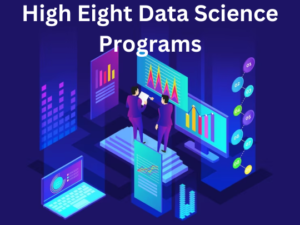Table of Contents
ToggleThe decision of whether to learn Python before SQL depends on your specific goals and the context in which you plan to use these skills. Both Python and SQL are popular and valuable languages in the realm of data and programming, but they serve different purposes and are used in different domains.
Python is a versatile programming language known for its simplicity and readability. It has a wide range of applications, including web development, data analysis, machine learning, and automation. Learning Python can provide you with a solid foundation in programming concepts and enable you to work on various projects across different domains.
SQL (Structured Query Language), on the other hand, is specifically designed for managing and manipulating relational databases. It is used for tasks such as querying, updating, and managing data stored in databases. SQL is essential for working with databases and is commonly used by data analysts, data scientists, and database administrators.
If your primary focus is on data analysis, data science, or working with databases, learning SQL before Python might be beneficial. SQL will allow you to retrieve and manipulate data efficiently from databases, which is crucial for working with data-centric roles. Once you have a good grasp of SQL, you can then expand your skills by learning Python for data analysis, data visualization, or automation tasks related to databases.
Data Science is a promising career option. Enroll in Best Data Science in Bangalore. Program offered by 360DigiTMG to become a successful Data science Expert!.
However, if you have a broader interest in programming and want to explore various domains beyond data management, starting with Python can be a good choice. Python’s versatility makes it suitable for both general-purpose programming and data-related tasks. You can learn Python to gain programming skills, understand programming concepts, and then branch out into SQL when you need to work with databases.
If your primary goal is to work with databases and data management, learning SQL before Python might be more suitable. On the other hand, if you have a broader interest in programming and want to explore different domains, starting with Python can provide you with a solid foundation before diving into SQL. Ultimately, the choice depends on your interests, goals, and the specific context in which you plan to apply these skills.
Let’s continue with subheadings and further details to provide a comprehensive perspective.
Python as a Starting Point:
Python is often recommended as a beginner-friendly language due to its clear and readable syntax. Starting with Python can help you grasp fundamental programming concepts and develop problem-solving skills. Here are some reasons why learning Python as your first language can be beneficial:
Earn yourself a promising career in Best Data Scientist by enrolling in Best Data Science in Chennai Program offered by 360DigiTMG.
Versatility: Python is a general-purpose programming language that can be used for a wide range of applications, such as web development, scientific computing, automation, and data analysis. It allows you to explore various domains and expand your programming skills beyond working with databases.
Large Community and Ecosystem: Python has a vast community of developers who contribute to an extensive ecosystem of libraries and frameworks. These resources make it easier to accomplish different tasks, from web development with Django or Flask to data analysis with pandas and NumPy.
Data Analysis and Visualization: Python has become a popular language for data analysis and visualization due to libraries like pandas, NumPy, and matplotlib. Learning Python enables you to manipulate, clean, analyze, and visualize data effectively before or after retrieving it from databases using SQL.
SQL for Database Management:
SQL (Structured Query Language) is a specialized language for managing and manipulating relational databases. Here are some reasons why learning SQL can be valuable:
Learn the core concepts of Data Science Course video on Youtube:
Data Retrieval and Manipulation: SQL allows you to retrieve, filter, sort, and aggregate data stored in databases efficiently. It provides powerful querying capabilities to extract specific information or perform complex calculations on datasets.
Database Design and Management: SQL is crucial for tasks like designing database schemas, creating tables, defining relationships, and managing data integrity. Understanding SQL helps you work with databases effectively, whether you’re building new databases or maintaining existing ones.
Data Analysis and Reporting: SQL is widely used in data-centric roles, such as data analysts or database administrators. Proficiency in SQL enables you to generate insightful reports, perform data exploration, and extract meaningful insights from large datasets.
Looking forward to becoming a Data scientist Expert? Check out the Best Data Science in Pune and get certified today.
Integration and Synergy:
Learning both Python and SQL creates a powerful combination, allowing you to leverage the strengths of each language. Here are some points of integration and synergy between Python and SQL:
Database Connectivity: Python provides libraries like SQLAlchemy, which facilitate the interaction with databases using SQL. These libraries offer an Object-Relational Mapping (ORM) layer, enabling you to write SQL queries in Python code seamlessly.
Data Preprocessing: Python’s extensive libraries for data manipulation and preprocessing, such as pandas, can be used to clean and transform data before storing it in a database. Python allows you to handle complex data manipulation tasks and perform data validation before inserting or updating data using SQL.
Automation and Orchestration: Python’s scripting capabilities can be used to automate database-related tasks. You can write Python scripts that execute SQL queries, perform data backups, schedule jobs, or generate reports from databases.
Data Analysis Workflow: Python’s data analysis libraries, combined with SQL’s data retrieval capabilities, enable you to create end-to-end data analysis workflows. You can use Python for tasks like data cleaning, exploratory data analysis, statistical modeling, and visualization, while SQL helps you efficiently extract relevant data subsets or perform aggregations when necessary.
Becoming a Data science Expert! is possible now with the 360DigiTMGBest Data Science in Hyderabad. Get trained by the alumni from IIT, IIM, and ISB.
Python Libraries for SQL:
Python offers several libraries that facilitate working with SQL databases and further integrate Python and SQL. Here are some notable libraries:
SQLAlchemy: SQLAlchemy is a powerful and popular Python library that provides an Object-Relational Mapping (ORM) framework. It allows you to interact with databases using high-level Pythonic syntax, abstracting away the specific SQL syntax. SQLAlchemy supports multiple database engines and provides flexibility in querying, inserting, updating, and deleting data.
psycopg2 and mysql-connector-python: These libraries are specifically designed for connecting Python to PostgreSQL and MySQL databases, respectively. They offer efficient database connectivity and enable you to execute SQL queries directly from Python code.
pandas.io.sql: This module within the pandas library allows you to read and write data between Python and SQL databases seamlessly. It provides functions like read_sql() and to_sql() that facilitate data retrieval and insertion using SQL.
sqlite3: SQLite is a lightweight and serverless database engine that is included with Python’s standard library. The sqlite3 module allows you to interact with SQLite databases using SQL statements directly from Python.




